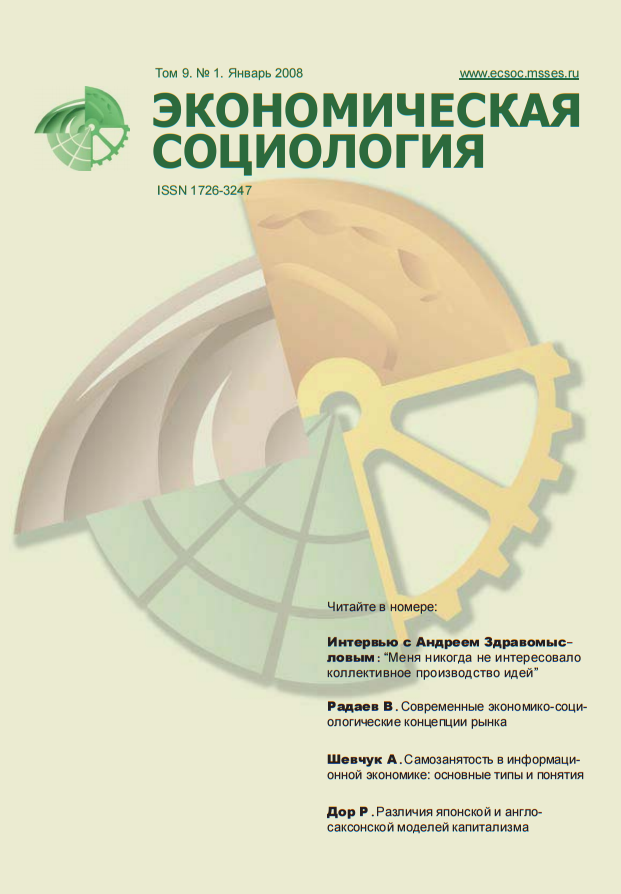Self-Employment in the Information Economy: Main Types and Definitions
Abstract
The author pays attention to the workers that do not belong to any formal organization. The paper deals with several aspects of self-employment in the modern economy. Its main features are defined by the characteristics of post-industrial or information society. Self-employment more and more relates to the highly qualified work in production sector or information sector. Freelancers who provide the services by themselves get more and more power on the market. Modern information and communication technologies work for self-employment re-structurisation. Today it can be provided by tele-working. Virtual markets of freelancer or e-lancers appeared and are developing now. These markets allow no face-to face contact between self-employers and their clients. Job search, contract agreement, getting task, results transfer and the payment as well as everyday communication go through the internet. The infrastructure of these markets is given by the special web-sites - exchanges of tele-work. The increase in the share of such workers (free-lancers and e-lancers) depends on the continuing growth of the volume of work in the information sector as well as on the further development of information and communication technologies.













